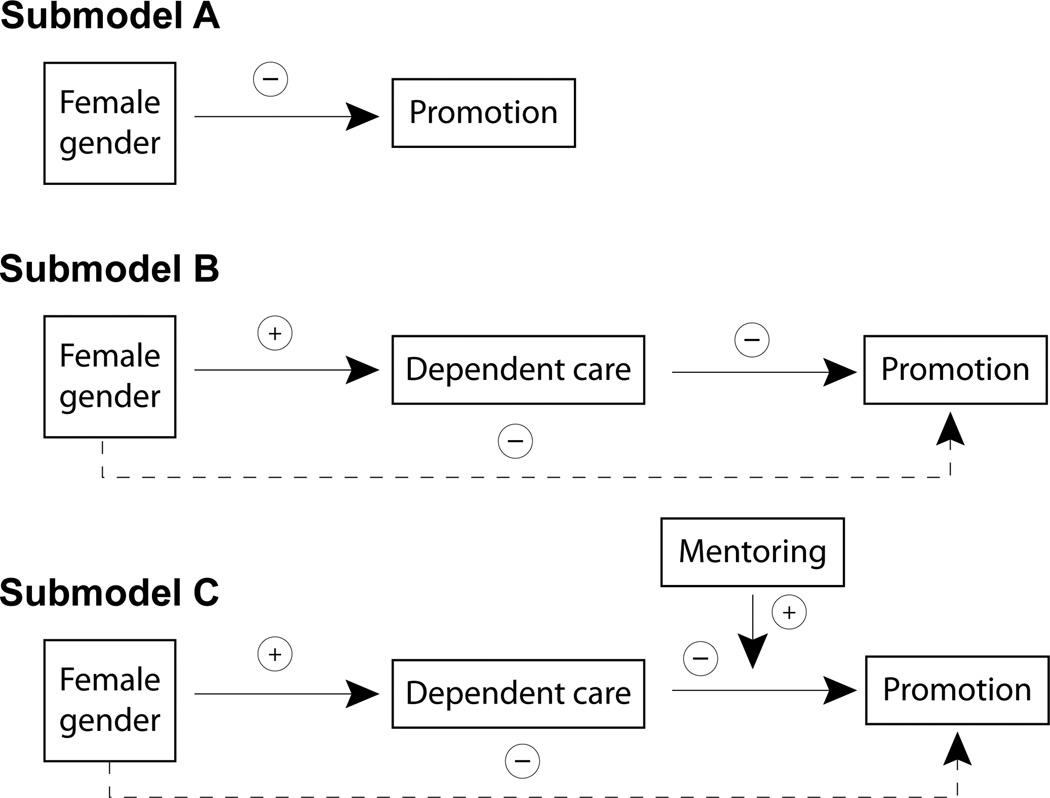Figure 2.
Three submodels hypothesizing the associations between gender and promotion in career development, based on a comprehensive career-success model for physician-scientists developed by the University of Pittsburgh Institute for Clinical Research Education Research on Careers Workgroup, 2010. Submodel A shows a negative link between one personal factor (female gender) and one career-success factor (promotion). Submodel B includes two personal factors (female gender and dependent care) plus one career-success factor (promotion). Submodel C adds an organizational factor (mentoring). According to our model, if the need to provide dependent care acts as a mediator and decreases the chances of promotion for a physician-scientist, then the introduction of mentoring may counter this effect and increase the chances of promotion.

